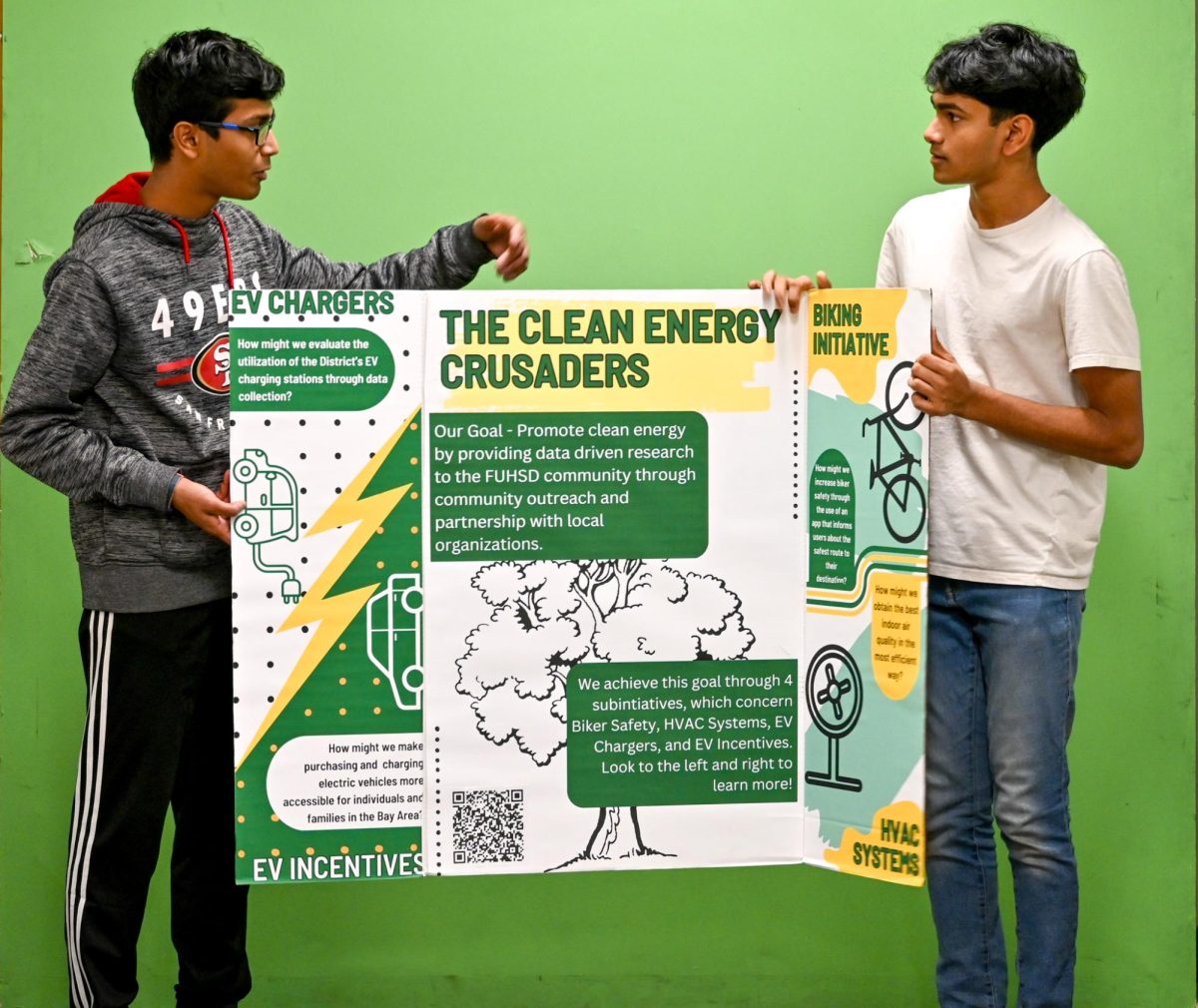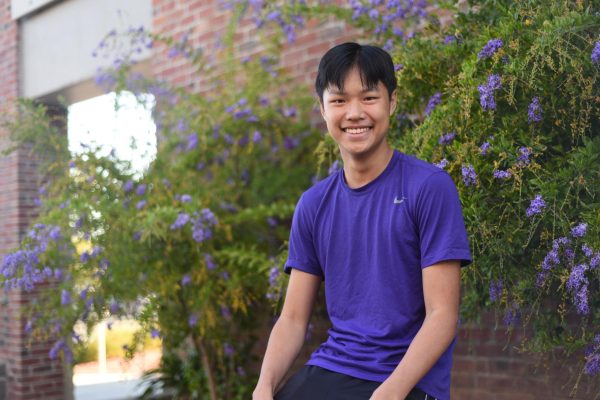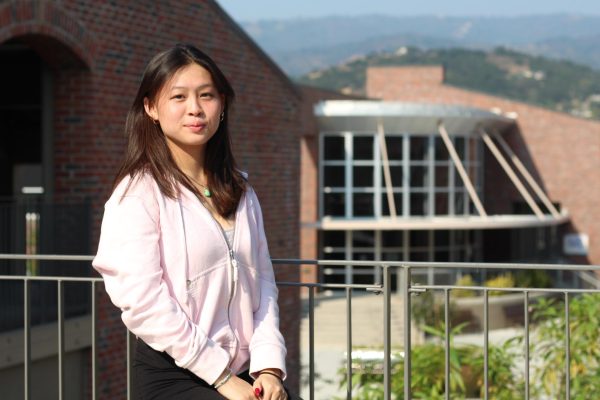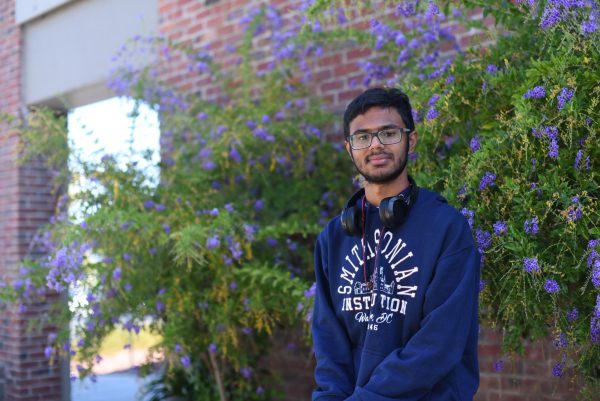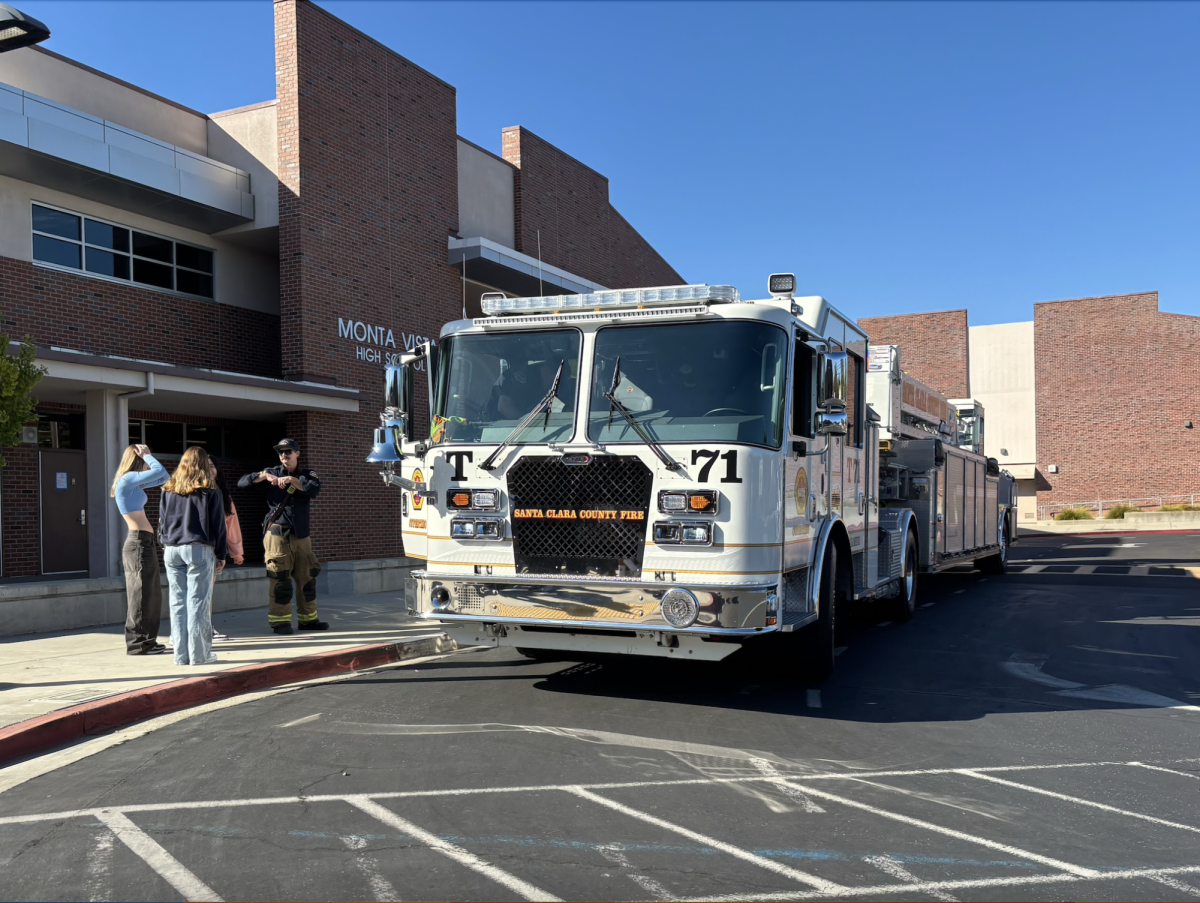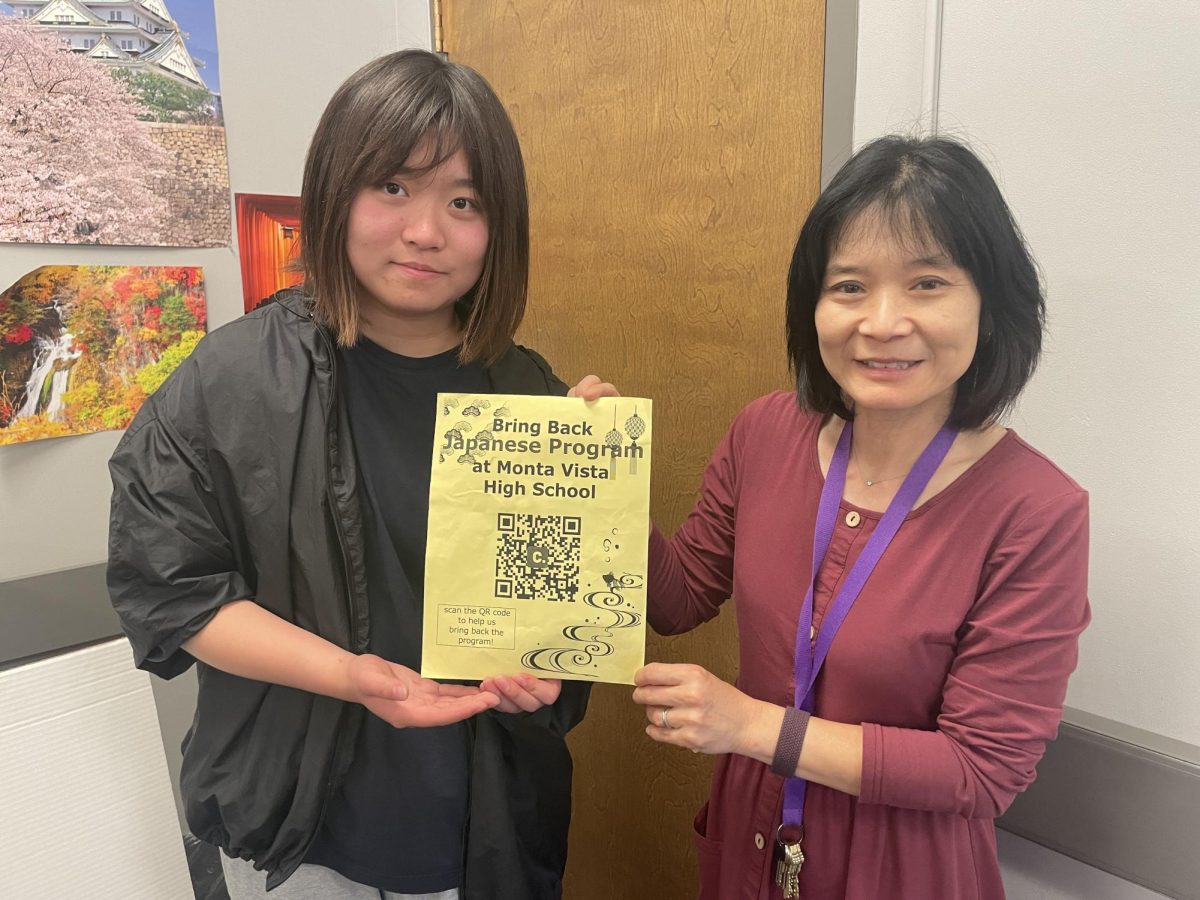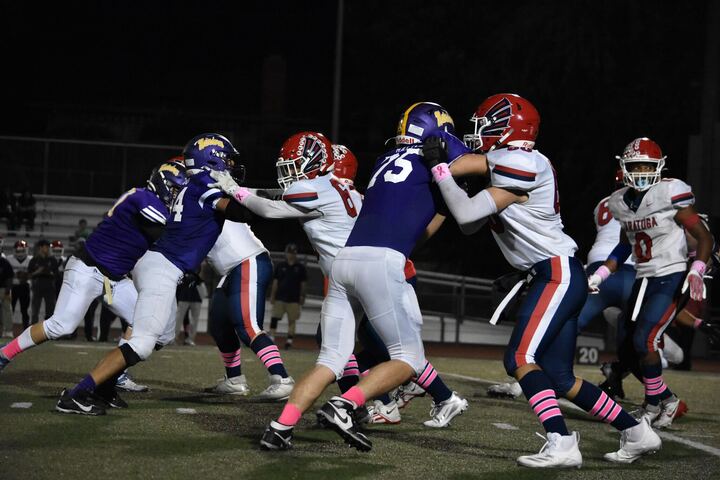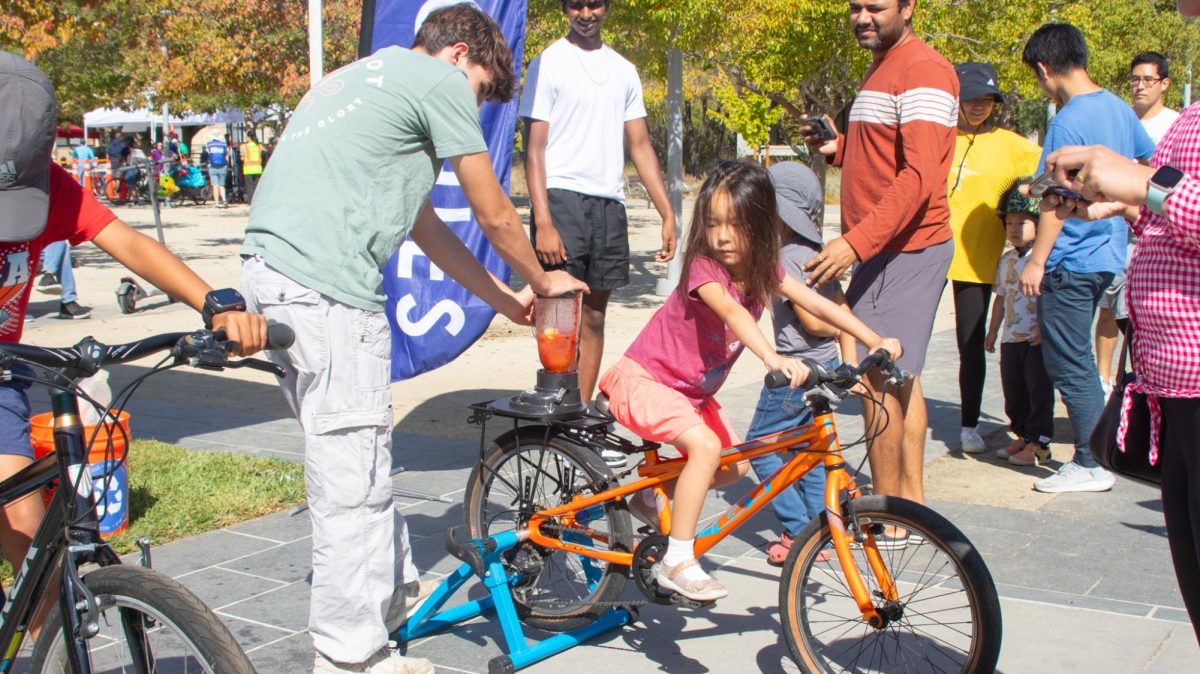Junior Ganesh Batchu and senior Omkar Kulkarni received the news that they had won an $8,850 grant from Silicon Valley Clean Energy last February. As part of an ongoing project for the past three years in their Interdisciplinary Research (IRPD) class, Batchu and Kulkarni worked to complete various projects related to improving energy efficiency, EV chargers and bike racks within the school district.
Batchu says IRPD students work to complete passion projects that can bring positive changes to the community. For his project, he focused on incentivizing biking within Cupertino by collaborating with the administration to implement changes at MVHS.
“We’re working on a few things like an app and also with the school admin in order to buy and purchase new bike racks for the school,” Batchu said. “It’s quite disastrous because I go to the bike racks and I see bikes just hooked up onto the sides. So we thought that adding new bike racks and changing the flow of traffic coming into MVHS would incentivize biking even more.”
Meanwhile, Kulkarni’s project also fell under the transportation category but revolved around collecting data about EV chargers within Cupertino and identifying areas with a shortage of them. By presenting to the FUHSD board to garner support and utilizing the grant funds, his project aimed to strategically place new EV chargers, fostering the growth of EV adoption in the community.
After IRPD advisor Kavita Gupta introduced the idea of applying for the Silicon Valley Clean Energy grant, Batchu, Kulkarni and two other former MVHS students combined their individual projects, all aligned under the topic of clean energy, to form their application.
“First of all, it was identifying what we wanted to do for the rest of the year, and doing research on the scope and the feasibility of that project that we wanted to do,” Batchu said. “Once we came across the grant, it was like the stars aligned and we found ways that we could have our initiatives aligned.”
Batchu and Kulkarni agree that despite the tedious process of applying for the grant, coupled with their initial low expectations, their efforts and perseverance throughout the process were ultimately worth it.
“Going into it, I was like, ‘Okay, should we apply for the grant, but we may not get it,’” Batchu said. “And that’s kind of built upon the idea that the SVC is massive. It provides electricity to so many homes. So when it did come, we were ecstatic and we were just in awe of the fact that we actually got the grant. And that just goes to show that all the work that we put in paid off.”
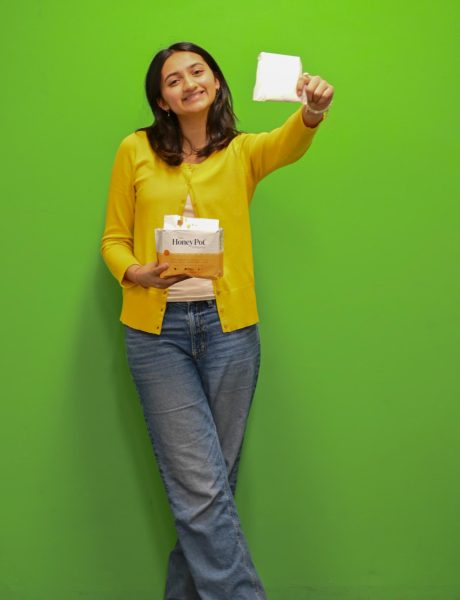
Similar to Batchu and Kulkarni, junior Ananya Chaudhary also received a $2,000 grant on Nov. 3 from National Geographic for a project she worked on in IRPD. The focus of the project was menstrual poverty and sustainability — an idea that stemmed from an Indian movie she watched with her father called Pad Man. In the biographical film, a man decides to create a hygienic and affordable sanitary pad for impoverished women. After watching the movie, Chaudhary was surprised to learn that in many parts of the world, the topic of menstruation and menstrual products was considered taboo.
“I grew up in a household where my dad and my mom were always very comfortable talking to me about those types of things so I just couldn’t believe that other people weren’t doing the same thing,” Chaudhary said. “Afterwards, my dad started talking about his experience because he grew up in India and he had four sisters and a mother and they would hide their period products and wouldn’t exactly use hygienic items for their periods. And I personally was shocked. After that, my dad and I started talking about this project.”
Chaudhary’s project utilizes a two-pronged approach when addressing the issue of menstrual poverty and sustainability. Initially, she hopes to promote alternative products such as DIVA cups, because they can be washed and reused, which would help reduce the waste caused by more common products such as pads and tampons. In addition, Chaudhary hopes to also develop an app that can connect people to hospitals she hopes to supply sustainable products to.
“A lot of the regular period products like tampons are very bad for the environment and they cause a lot of waste to build up over time,” Chaudhary said. “When I was doing research on my project, I [learned] 200,000 tons of waste per year were spread into the environment and the atmosphere and it contributes to global warming and climate change. A lot of times people who are in poverty aren’t using hygienic products. They’re using cloth and things that can contract UTIs and diseases.”
Like Batchu and Kulkarni, Gupta also introduced Chaudhary to the possibility of applying for a grant after she discovered a National Geographic program that would be able to assist her project, prompting her application process.
“I don’t think this project would have been possible without the help of all three IRPD teachers,” Kulkarni said. “They taught us how all this research and implementation of our projects works. I think the mentors played a really big role and a lot of the credit goes to them.”
For Batchu and Kulkarni, the grant, along with the constant guidance from their advisors, allowed them to take their project to the next level by implementing the new bike racks and new systems for EVs.
“We just went in wanting to have as much impact as possible, district-wide as well as city-wide,” Batchu said. “Initially, our projects were only aimed at the school level but this grant allowed us to scale the project city-wide so we had presentations across the city and we reached out to the City Council about our projects.”
Similarly, Chaudhary hopes that her grant will provide her with a jumpstart to begin expanding her project. She hopes to use the money to approach the broad issue of menstrual sustainability, focusing on the issue of menstrual poverty after spreading more awareness.
“I want to save as much money as possible so that later on, I can do larger things with the money,” Chaudhary said, “Initially, I want to plan events. For example, I want to start off at high schools teaching high school students the importance of sustainability and menstruation, but after that, I want to go onto more city-wide things so that more people in Cupertino will be able to see sustainable options for period products. And I feel like $2,000 for that is pretty viable and I’d be able to use it for that.”
Ultimately, Batchu, Kulkarni and Chaudhary all express their gratitude for receiving these grants, a success they all saw as unexpected. Batchu highlights his wishes to create a lasting impact with his work, which motivated him throughout the process.
“We would like to see our solutions that we implemented to some degree in the district,” Batchu said. “Our final goal is to make a lasting change within our community. I think that’s the most important thing for us students. At the end of the day, I want to say that I’ve built a legacy that’s worth remembering.”





